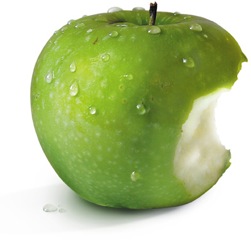Let's start at the very beginning: Yin Yang
There are 4 Guiding Principles to understanding Yin and Yang
1. Opposition
2. Interdependence
3. Conterbalance/mutual consumption
4. Intertransformation
1. Opposition
Every phenomenon has two opposing aspects; Every Yin/Yang phenomenon possesses Yin and Yang aspects
Yin has the following characteristics:
Dark, Earth, lower, night, autumn, winter, cold, female, slow
Yang has the following characteristics:
Light, Heaven, upper, day, spring, summer, hot, male, fast
2. Interdependence
Yin exists by virtue of it's opposite, Yang, just as light exists by virtue of dark
The Nei Jing (the Chinese Medicine Classic) states:
"Without Yin, Yang cannot arise; Without Yang, Yin cannot be born." Also, "Yin is in the inner and roots Yang, and Yang is in the outer and moves Yin."
3. Conterbalance/ Mutual Consumption
Yang grows by consuming Yin and Yin grows by consuming Yang. We consume and restore Yin (nourishment) and Yang (energy) daily. Maintenance of balance of Yin and Yang establishes wellness. Failure to maintain balance leads to preponderance of either Yin or Yang and excessive consumption of the other, and creates an environment for disease to ensue.
There are 4 types of imbalances:
Yin Vacuity- not enough Yin
Yang Vacuity- not enough Yang
Yin Repletion- too much Yin
Yang Repletion- too much Yang
4. Intertransformation
Yang aspects or patterns become Yin aspects or patterns and visa-versa.
Ex. Summer (Yang) turns into Fall (Yin)
Ex. A chronic condition (Yin) can weaken immunity and leave body vulnerable to external attacks (Yang), such as viruses
Understanding a bit about Yin and Yang can be helpful in addressing your body's needs
- Balancing rest and activity
- Knowing what to eat (cool foods in Yang seasons, warm foods in Yin seasons)
- Knowing how to treat minor imbalances (i.e. nourish yang with light exercise, rest, acupuncture, and warm foods when you are Yang deficient)
I challenge you to use this new knowledge to discover the potential for cultivating balance in your body, environment, and life.


No comments:
Post a Comment